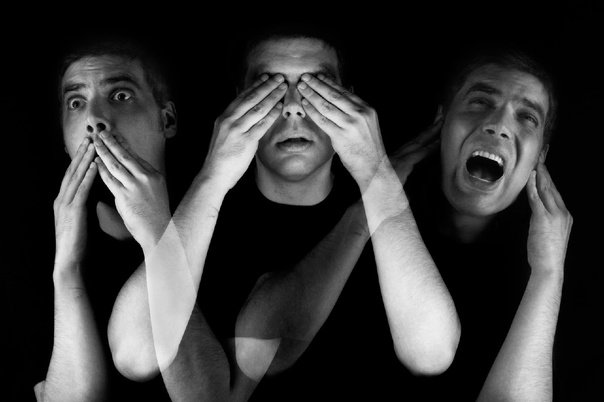Psychosis is a word that tends to evoke a lot of confusion and, unfortunately, stigma. But let’s be honest — it’s not the kind of topic that gets a lot of friendly conversations started at dinner parties. Despite its complexity, psychosis is an important mental health issue that affects millions worldwide. In this post, we’ll dive into what psychosis is, how it impacts people’s lives, and what can be done to treat and manage it.

Introduction to Psychosis
What is Psychosis?
At its core, psychosis is a condition that affects how a person interprets reality. It involves a disconnect from the world around them, leading to hallucinations, delusions, and a general alteration in thinking patterns. When someone experiences psychosis, they may see or hear things that others don’t (hallucinations) or hold beliefs that have no grounding in reality (delusions).
Why is Understanding Psychosis Important?
You may be wondering, “Why should I care about psychosis if it doesn’t affect me directly?” Well, the reality is that psychosis impacts more people than you might think. Whether through friends, family, or coworkers, many of us are touched by this condition in some way. Understanding it helps us break down misconceptions, support those going through it, and contribute to a more empathetic society.
The Symptoms of Psychosis
Psychosis is not a one-size-fits-all condition. It manifests in a variety of symptoms, and these can look different from person to person.
Hallucinations
Hallucinations involve sensing things that aren’t real. This could be seeing shadows that aren’t there, hearing voices when no one is speaking, or even feeling sensations on the skin. These experiences can be incredibly distressing and make it difficult to navigate daily life.
Delusions
Delusions, on the other hand, are strong beliefs in something that isn’t true or based in reality. For instance, someone might believe that they have special powers or that they are being targeted by an organization. These thoughts feel incredibly real to the person experiencing them, even if they seem bizarre to others.
Disorganized Thinking
A common symptom of psychosis is disorganized thinking, which may make it difficult for someone to follow a conversation or express their thoughts clearly. Their speech might be incoherent or jump from one topic to another without a logical connection.
Types of Psychotic Disorders
Psychosis is not a standalone disorder; it’s often a symptom of broader mental health conditions. Let’s explore some of the most common ones.
Schizophrenia
When most people hear “psychosis,” they think of schizophrenia. Schizophrenia is a long-term condition characterized by persistent psychotic symptoms, such as hallucinations and delusions, as well as a decline in daily functioning.
Schizoaffective Disorder
This condition combines symptoms of schizophrenia with mood disorder features, like depression or mania. Schizoaffective disorder can be particularly challenging because it requires managing both mood swings and psychotic episodes.
Brief Psychotic Disorder
Unlike schizophrenia, which is long-lasting, brief psychotic disorder is a short-term condition. Symptoms appear suddenly, often in response to a stressful event, and last less than a month before the individual returns to their normal state.
Bipolar Disorder with Psychotic Features
Psychosis can also appear in people with bipolar disorder, usually during extreme mood episodes like mania or severe depression. In these cases, the psychosis aligns with the person’s mood, amplifying feelings of grandiosity or worthlessness.
Causes of Psychosis
So what exactly causes psychosis? The answer is complicated because it’s rarely due to just one thing. Usually, a combination of biological, psychological, and environmental factors play a role.
Biological Factors
Biological elements, such as genetics, brain chemistry, and hormone imbalances, are often linked to psychosis. Research shows that people with a family history of psychotic disorders are at higher risk.
Psychological Factors
Trauma, stress, and emotional disturbances can also contribute to the development of psychosis. People with a history of childhood abuse or significant emotional stress are more susceptible.
Environmental Influences
Environment plays a significant role in mental health. Psychosis can be triggered by life stressors, such as moving to a new city, losing a job, or dealing with the death of a loved one.
Risk Factors for Developing Psychosis
Although psychosis can affect anyone, certain factors increase the likelihood of experiencing it.
Genetic Predisposition
If your parents or siblings have experienced psychosis, there’s a higher chance that you might, too. Genetics plays a critical role in many mental health conditions, including psychosis.
Substance Abuse
Drug and alcohol use, particularly during adolescence, can trigger psychotic episodes. Substances like cannabis, LSD, and methamphetamine are known to increase the risk of psychosis, especially if there’s a pre-existing vulnerability.
Traumatic Experiences
Trauma and extreme stress are common risk factors for psychosis. Individuals who have experienced physical, emotional, or sexual abuse may develop psychotic symptoms as a coping mechanism or as a reaction to overwhelming emotions.
The Stages of Psychosis
Psychosis typically unfolds in three main stages: prodromal, acute, and recovery. Recognizing these stages can help with early intervention and better outcomes.
Prodromal Stage
In the prodromal stage, subtle signs of psychosis begin to appear, such as withdrawal from social interactions, changes in behavior, and mild hallucinations or delusions. This stage can last weeks, months, or even years before full-blown psychosis occurs.
Acute Stage
The acute stage is when psychotic symptoms are at their peak. Hallucinations, delusions, and disorganized thinking become more intense, often requiring medical intervention or hospitalization.
Recovery Stage
Once the acute symptoms are managed, the individual enters the recovery stage. Treatment, including medication and therapy, helps stabilize symptoms and allows the person to reintegrate into daily life.
Diagnosing Psychosis
Diagnosing psychosis is not always straightforward. It requires a thorough evaluation and often involves ruling out other mental health conditions.
Medical History and Evaluation
A doctor or mental health professional will start by gathering a detailed medical history and conducting a physical examination to rule out any underlying health issues that could be causing the symptoms.
Psychosis vs. Other Mental Health Disorders
Psychosis shares symptoms with other disorders, like severe depression or bipolar disorder, which is why a careful evaluation is necessary. The healthcare provider will assess how long the symptoms have been present and their intensity.
The Role of Imaging and Tests
Sometimes, brain scans like MRIs or CT scans may be used to check for any abnormalities in the brain. Blood tests might also be ordered to rule out infections or imbalances that could be causing psychotic symptoms.
Treatment Options for Psychosis
Treatment for psychosis varies depending on the cause, but typically involves a combination of medication, therapy, and sometimes hospitalization.
H3: Medication
Antipsychotic medications are often prescribed to help manage hallucinations, delusions, and other symptoms. These medications can be life-changing for people with psychosis but may require time and adjustments to find the right dosage.
Therapy and Counseling
Therapy is a crucial part of managing psychosis. Cognitive Behavioral Therapy (CBT) helps individuals challenge their delusions and develop healthier thought patterns. Family therapy can also provide much-needed support for both the individual and their loved ones.
Hospitalization and Crisis Intervention
In severe cases, hospitalization may be necessary to stabilize the individual and ensure they are safe. During a crisis, intervention teams can help manage the situation and provide immediate care.
Long-Term Management of Psychosis
Living with psychosis requires ongoing management, and many people with this condition can lead fulfilling lives with the right support.
Developing a Support Network
A strong support network, including family, friends, and mental health professionals, is essential. Regular check-ins and open communication can help prevent relapses and provide emotional support.
Self-Care and Coping Strategies
Self-care is not just a buzzword — it’s a necessity for those with psychosis. This could involve mindfulness practices, regular exercise, a healthy diet, and maintaining a consistent sleep schedule.
The Importance of Regular Follow-Up Care
Regular follow-up appointments with a psychiatrist or therapist ensure that any emerging symptoms are caught early. It’s also a way to adjust medications or treatment plans if needed.
The Impact of Psychosis on Daily Life
The symptoms of psychosis can affect various aspects of life, from relationships to work and education.
Personal Relationships
Psychosis can put a strain on relationships, especially when loved ones don’t understand what the individual is going through. It’s important for family and friends to educate themselves and offer compassion.
Work and Education
Many people with psychosis face challenges in maintaining employment or continuing education. However, with the right accommodations and support, they can thrive in these environments.
Stigma Surrounding Psychosis
Unfortunately, psychosis is still heavily stigmatized in society. People with psychosis are often misunderstood or feared, which can make them feel isolated. Raising awareness and promoting mental health education is key to reducing this stigma.
Living with Psychosis: Real-Life Stories
Hearing from individuals who have experienced psychosis can offer valuable insight and hope. Many people with psychosis have found ways to manage their symptoms and live fulfilling lives despite the challenges.
Personal Accounts and Experiences
Real-life stories from individuals who have experienced psychosis can be both inspiring and educational. Many have overcome significant challenges and found ways to manage their symptoms with the help of treatment, support, and resilience.
Overcoming Challenges
Although the road to recovery is not always easy, many people with psychosis find strength in their journey. They learn to navigate daily life with the help of medication, therapy, and a supportive network of loved ones.
Preventing Psychosis Relapse
Relapses can happen, but with the right precautions, they can be minimized or avoided.
Medication Adherence
Taking medications as prescribed is one of the most effective ways to prevent a relapse. It’s crucial to communicate with a doctor about any side effects and not to stop medication abruptly.
Early Warning Signs
Recognizing the early warning signs of psychosis — such as sleep disturbances, withdrawal from social activities, or subtle changes in thinking — can help catch a relapse before it fully develops.
Ongoing Therapy
Consistent therapy, whether individual or group-based, can help individuals stay on track with their mental health. Therapy provides a safe space to discuss concerns and challenges as they arise.
How to Support Someone with Psychosis
If you know someone experiencing psychosis, your support can make a world of difference. But how do you go about offering help?
Providing Emotional Support
Listening without judgment is one of the most important things you can do. Let them know that you are there for them and that you believe in their ability to get through this.
Encouraging Professional Help
While emotional support is valuable, professional help is essential. Encourage your loved one to seek the assistance of a mental health professional if they haven’t already.
Understanding and Empathy
It’s easy to become frustrated when someone you care about is struggling with a condition like psychosis. However, practicing patience and empathy is critical. Understand that what they are experiencing feels real to them, even if it’s hard for you to comprehend.
Psychosis is a complex condition, but with the right information, support, and treatment, it can be managed effectively. Whether you’re someone experiencing psychosis or a loved one supporting someone through it, understanding the nature of this condition can make a significant difference in how it’s approached. By breaking down the stigma, staying informed, and fostering empathy, we can create a more supportive and compassionate world for those affected by psychosis.
What are the first signs of psychosis?
The early signs of psychosis, known as the prodromal phase, can include withdrawal from social activities, trouble concentrating, suspicious thoughts, and minor hallucinations or delusions. If these symptoms persist, it’s important to seek help early.
Can psychosis be cured?
While there’s no cure for psychosis, it is treatable. With medication, therapy, and ongoing support, many people manage their symptoms and lead fulfilling lives.
What’s the difference between psychosis and schizophrenia?
Psychosis is a symptom that can occur in several disorders, including schizophrenia. Schizophrenia is a long-term mental health condition characterized by persistent psychotic symptoms.
How can family and friends support someone with psychosis?
Family and friends can provide emotional support by listening without judgment, encouraging professional help, and educating themselves about the condition. Empathy and patience are key.
Is psychosis caused by drug use?
Substance abuse, particularly of drugs like cannabis, LSD, and methamphetamine, can trigger psychotic episodes, especially in individuals predisposed to psychosis. However, psychosis can also occur without any drug use.




